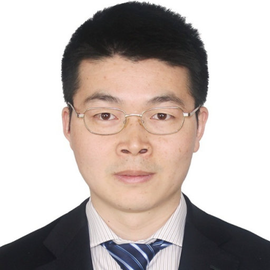Abstract
Structural reliability analysis is essential for ensuring the safe and dependable operation of engineering equipment. Delivering both efficiency and precision in this analysis remains a key challenge for complex structures. The classical First-Order Reliability Method (FORM) can be unsuitable for certain complex engineering problems due to the characteristics of the limit-state function (LSF) and the difficulty of obtaining its gradient. This study proposes an Adaptive Kriging model-assisted FORM within a heuristic algorithms framework (AK-FORM) to enhance FORM-based reliability assessment. First, an augmented Lagrangian formulation is developed to recast the first-order reliability problem as an unconstrained optimisation task, eliminating the need to tune penalty parameters. Second, an adaptive Kriging strategy that combines global exploration with local exploitation is introduced, striking a balance between local accuracy and global convergence. The method is benchmarked against four numerical examples and three engineering cases. Results show that AK-FORM significantly reduces LSF evaluations while improving computational accuracy and robustness.
Publication
Book of Abstracts of the 3rd International Symposium on Risk Analysis and Safety of Complex Structures

Professor
Ph.D, Professor, Doctoral Supervisor, PIF Fellow of Politecnico di Milano, Italy since April 2016 and research associate at University of Maryland, United States from 2010 to 2011. His research which has been published in scholarly journals and edited volumes, over 100 peer-reviewed book chapters, journals and proceedings papers, explores the aspects: Fatigue assessment; Probabilistic Physics of Failure modeling; reliability and risk analysis; Multi-physics damage modeling and life prediction under uncertainty; Multi-scale uncertainty quantification and propagation; Bayesian inference and Fuzzy sets; Probability-based life prediction/design for engineering components/materials. Dr. Zhu also studies advanced numerical methods for uncertainty quantification in engineering. He received the Award of Merit of European Structural Integrity Society (ESIS)-TC12 in 2019, Most Cited Chinese Researchers (Elsevier) in the field of Safety, Risk, Reliability and Quality since 2018, 2nd prize of the National Defense Science and Technology Progress Award of Ministry of Industry and Information Technology of China in 2014, Polimi International Fellowship in 2015, Hiwin Doctoral Dissertation Award in 2012, Best Paper Awards of several international conferences and Elsevier Outstanding Reviewer Status. He serves as guest editor, editorial board member of several international journals and Springer book series, Organizing Committee Co-Chair of the International Conference on Quality, Reliability, Risk, Maintenance, and Safety Engineering (QR2MSE 2013), TPC Member of ICMR 2015, ICMFM XIX 2018-2020 and IRAS 2019.